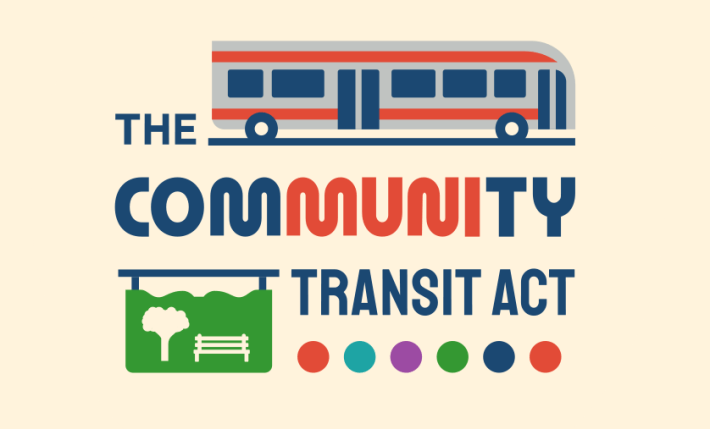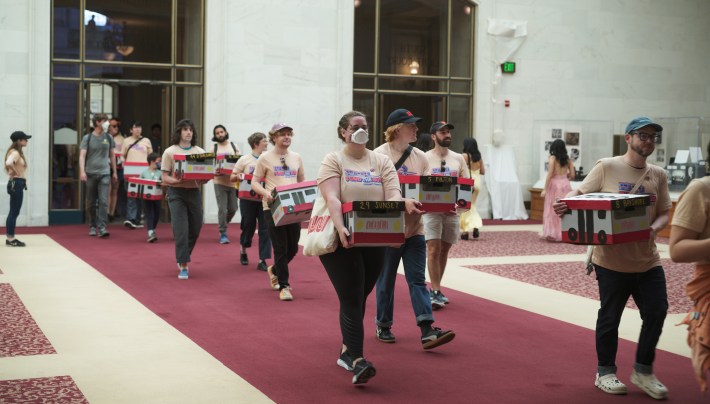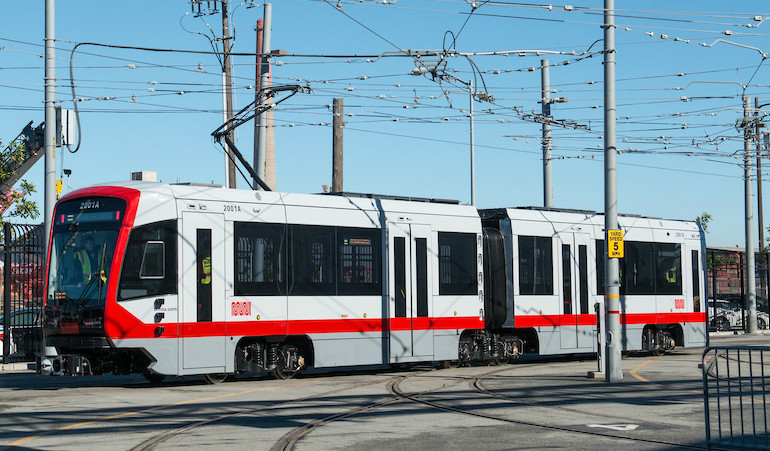Note: GJEL Accident Attorneys regularly sponsors coverage on Streetsblog San Francisco and Streetsblog California. Unless noted in the story, GJEL Accident Attorneys is not consulted for the content or editorial direction of the sponsored content.
The Community Transit Act, a measure to enact a maximum of 4.5 percent gross receipts tax on ride-hail companies, will appear on the Nov. 5 ballot in San Francisco. If passed, it is expected to generate up to $30 million per year for Muni operations, funding bus and train service and fare discount programs.
A coalition of transit advocates gathered 17,000 signatures, which were turned into San Francisco's Department of Elections on July 5th, to get it on the ballot. It was "a testament to the hard work of our more than 130 volunteer and 50 paid signature gatherers,” said Sarah Katz-Hyman, who co-led the volunteer signature gathering effort, in a statement.

"With federal funding ending, with the state subsidies that we won last year ending, we felt it was really important to move on funding before the SFMTA just hits a brick wall in July of 2026," said Cyrus Hall, campaign manager for the effort, in an interview with Streetsblog.
More from the organization's press kit:
The ComMUNIty Transit Act is a proposed ballot initiative to add a new gross receipts tax on ride-hail platform corporations like Uber, Lyft and Waymo to fund Muni. The funds will be used to help prevent Muni service cuts; improve access to public schools, libraries, and parks; and continue fare discount programs like Free Muni for Youth. We gathered over 17,800 signatures of San Francisco voters in order to get this on the November 2024 ballot, and were certified for the ballot on Friday, July 26.
At its core, this campaign is a community-led initiative. While we believe in the power of a robust, affordable, and accessible public transportation system in San Francisco, we are not affiliated with Muni, the SFMTA, or any other part of the city government. We are residents of San Francisco, standing up to say, “It’s time to fund public transit!”
Prior to writing this measure, we conducted extensive outreach to a breadth of community organizations from all across the city to identify an equitable, progressive funding source that can help fund the transit services and programs that San Franciscans rely on the most. By taxing ride-hail corporations, which divert resources from public transit and contribute an outsized portion of San Francisco’s congestion and greenhouse gas emissions, we can fund transit in a way that is in line with our city’s values of equity and climate resilience.
"Muni will soon be facing a $240 million annual hole," explained Hall. If passed by voters, the Community Transit Act will help bridge the agency until a larger regional measure can be passed. As Streetsblog readers will recall, S.B. 1031, the multi-billion dollar "Connect Bay Area Act," which was designed to fund agencies throughout the Bay Area, was put on pause this year by State Senator Scott Wiener due to opposition from San Jose and Santa Clara Counties. The hope now is to get a regional measure on the ballot in 2026.

To pass, the Community Transit Act needs 50 percent + 1 of San Francisco voters to say "yes." But there's an added complication: it also has to get more votes than a tax reform measure on the same ballot. Now starts the hard work of building support before the November election. "The campaign has thus far raised nearly $200,000 from donations within the community,” said Hall in a statement. “We’ve had a burst of new support since we submitted our signatures, and now that we’re on the ballot we look forward to building on this energy through November 5th."
To get involved, check out the Community Transit Act website.






